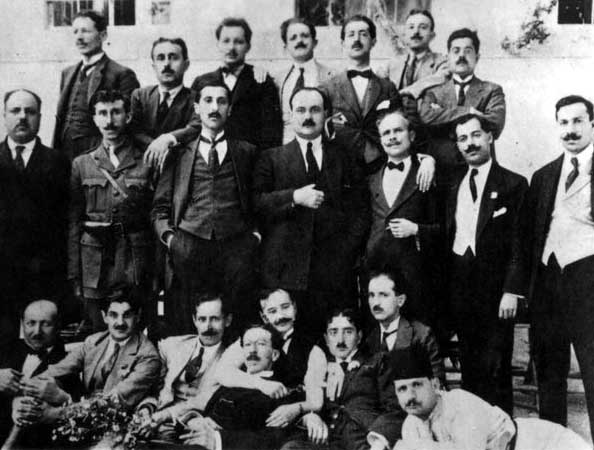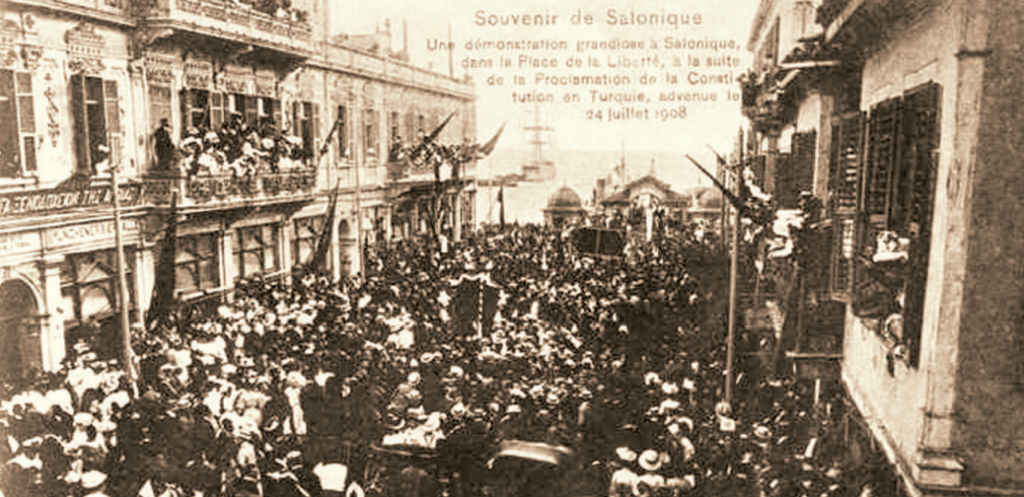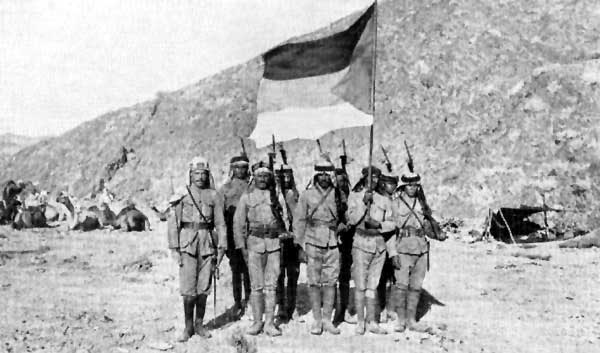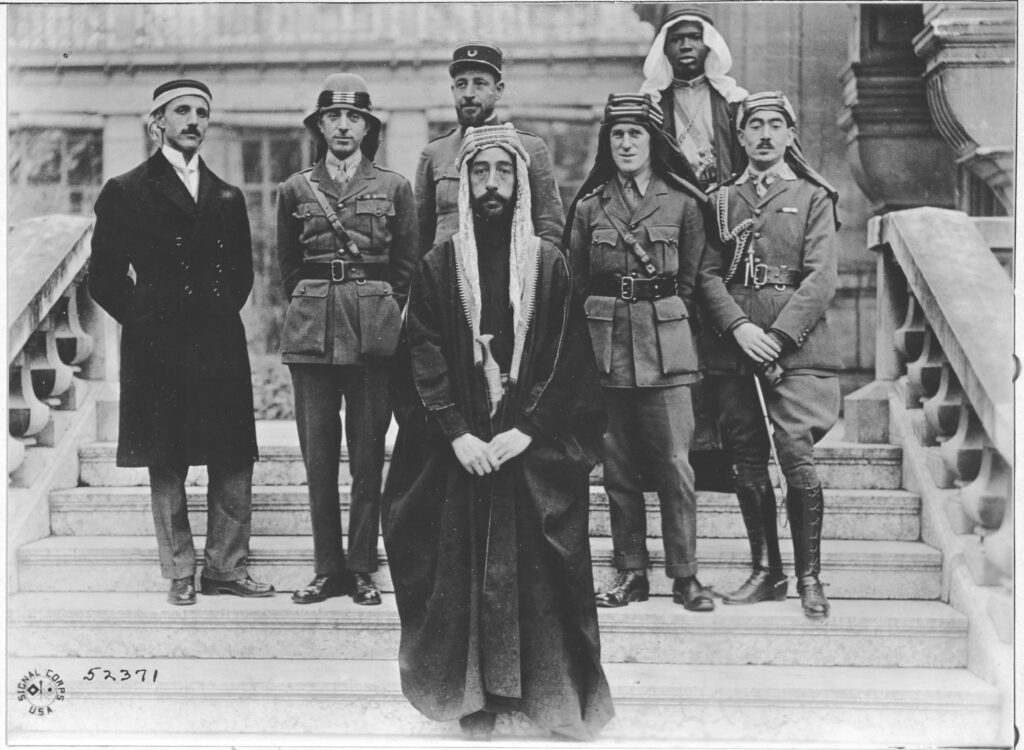Al-Fatat: An Arab Underground

By Liam Nagle / Arab America Contributing Writer
Many people already know about the Arab Revolt – an attempt by the Arabs, led by Sharif Hussein bin Ali, to achieve independence from the Ottoman Empire during World War I. However, lesser-known is the fact that numerous bodies had already formed before the war to achieve this same goal. Given the Ottomans’ position on ethnic minorities, as well as its general reluctance to modernize for the new era, it probably comes as no surprise that these groups – such as al-Fatat – were formed. Created in the aftermath of the Young Turk Revolution in 1908, this underground organization sought to champion Arab rights within the Empire, but later came to see secession as the only option.
Origins

Al-Fatat was formed in the wake of the 1908 Young Turk Revolution. This revolution, which sought to modernize the Ottoman Empire for the new century, was also supported by Arabs because of its potential to promote multiculturalism within the empire. However, many Arabs were met with disappointment, as the Young Turks also supported Turkish nationalism. Three Arab students – Ahmad Qadri, Awni Abd al-Hadi, and Rustam Haidar – formed Jam’iyat al-Arabiya al-Fatat, or the Young Arab Society. But conscious that the word “Arab” could draw the attention of Ottoman authorities, they shortened the name simply to al-Fatat, meaning “The Youth”.
Al-Fatat’s aims were defined during a 1913 congress of Arab societies. It was here where they embraced a reformist stance within the Ottoman Empire. Instead of seeking secession, al-Fatat sought administrative autonomy within the Arab provinces of the Ottoman Empire. In addition, they wanted Arabic to become an official language, and the installation of democracy in order to modernize the empire.
The Arab Revolt

When World War I started, and the Ottoman Empire went to war with the Allied Powers, al-Fatat officially took the stance of support for the Ottomans. This was because al-Fatat was primarily a reformist organization, and the defeat of the Ottomans in such a war could open the Arab world to “foreign penetration” and influence. However, a faction within al-Fatat was gaining traction that took the opposite approach. Instead, this faction supported the complete secession of Arab territories from the Ottoman Empire. The faction’s popularity only grew over the course of World War I, as the Ottoman Empire employed increasingly repressive measures to ensure the Arabs wouldn’t rise up in revolts, including imprisonment, exile, and executions.
This repression failed to ward off al-Fatat. In 1915, they would contact Emir Faisal, the son of Sharif of Mecca Hussein bin Ali, to have him lead an Arab revolt against the Ottomans. Upon learning that the British would be willing to support them, and al-Fatat reiterated its demands for independence instead of colonial domination, Faisal supported the revolt. He convinced his father and brothers as well, and the Arab Revolt began in Arabia in 1916. Over the course of the next two years, the Sharifian Army under Hussein bin Ali and supported by al-Fatat took over the Ottoman-held portions of Arabia, and went northwards all the way to Aleppo, in modern-day Syria. The Ottomans were soundly defeated by the end of 1918.
Independent States?

During the war, now-Prince Faisal established a separate administration from his father’s. While King Hussein ruled on the Arabian peninsula, Faisal ruled the Levant area known as Greater Syria (or just Syria). Al-Fatat supported Faisal, and several of its members became Faisal’s close confidants. A constitution for the new state was drafted, and al-Fatat formed a political party – known as the Independence Party – in the new democratic state of Syria. It was here where the organization gradually began to disintegrate. With the Ottomans now defeated and independence achieved, its members began joining formal political parties and helping to rule the new state.
Of course, the new state wouldn’t exist for long. Although al-Fatat was successful in achieving independence from the Ottomans, its European allies weren’t necessarily supportive of Arab independence as a whole. France, seeking to establish its own colonial holdings in the Middle East, launched the Franco-Syrian War. The war lasted four months, firmly defeating the Syrian state and subjugating the country. Faisal himself left Syria for Iraq, where he became the head of government under a British mandate. And thus ends the story of al-Fatat – although they did achieve their aims of independence from the Ottomans, the countries it helped form were quickly taken by the colonial powers in Europe.
Want more articles like this? Sign up for our e-newsletter!
Check out our blog here!








